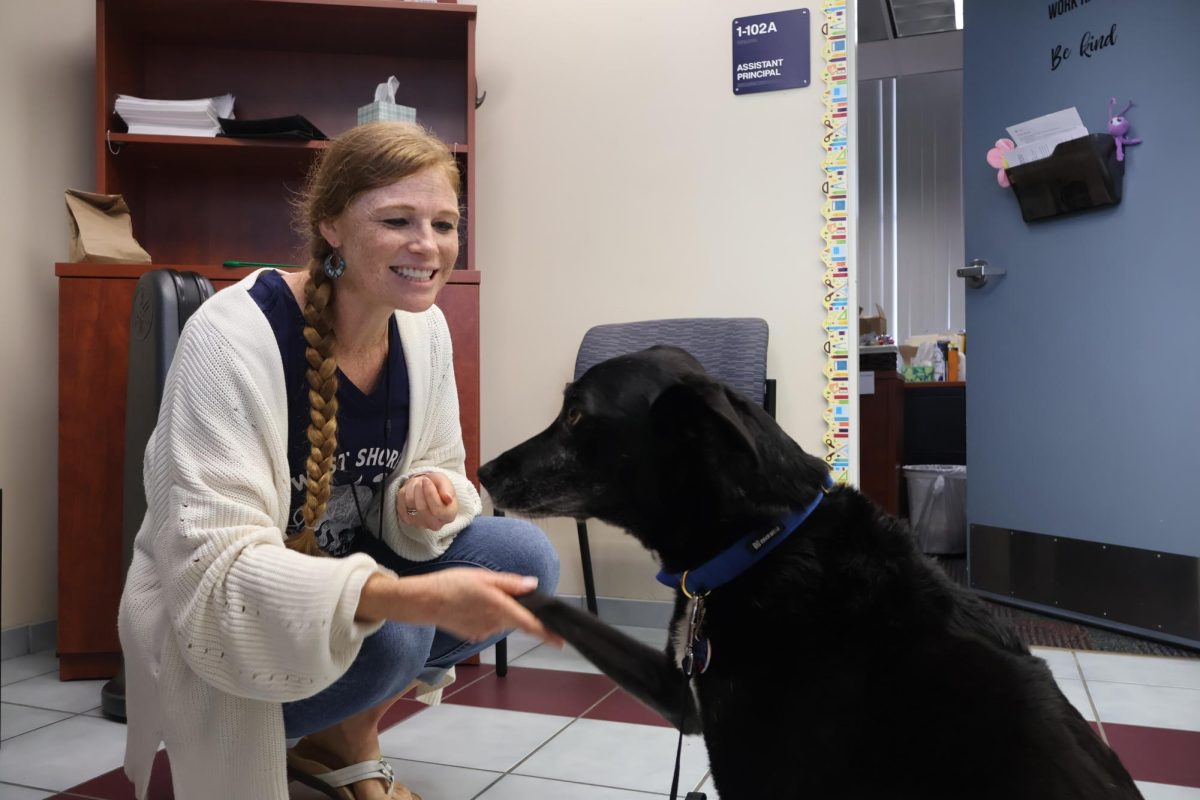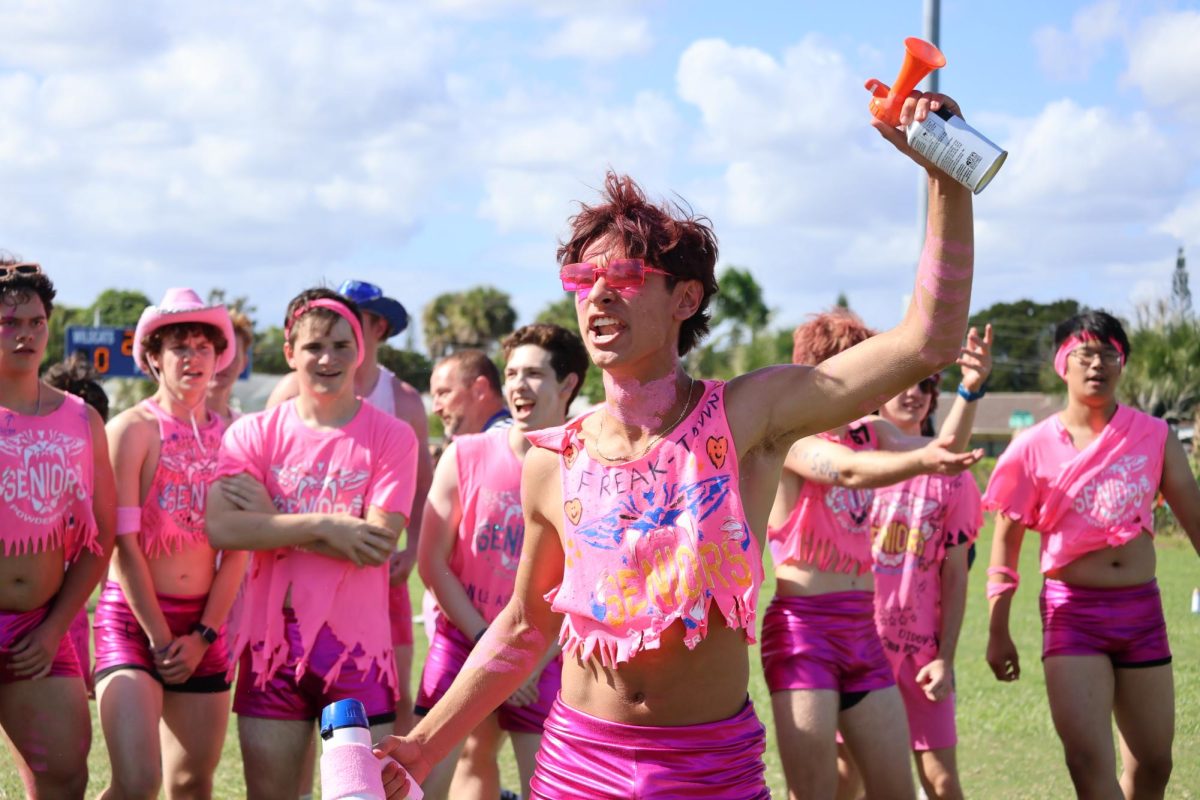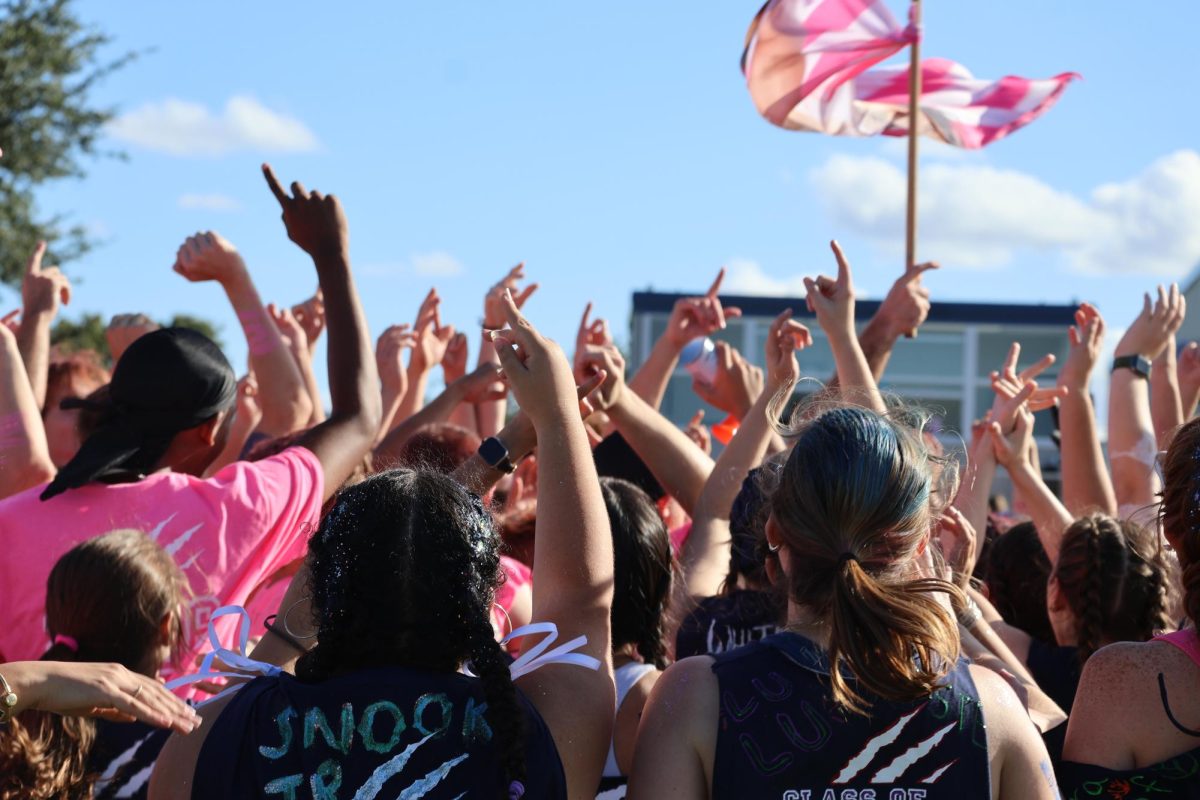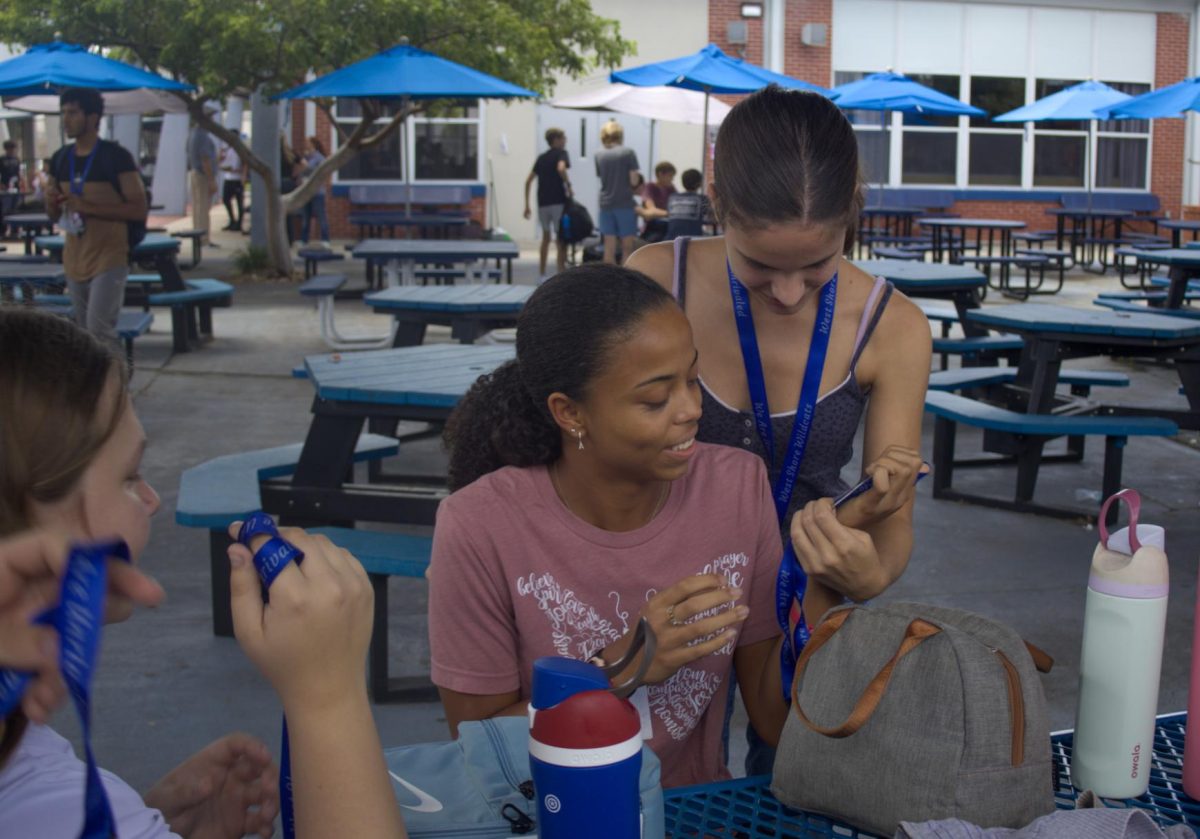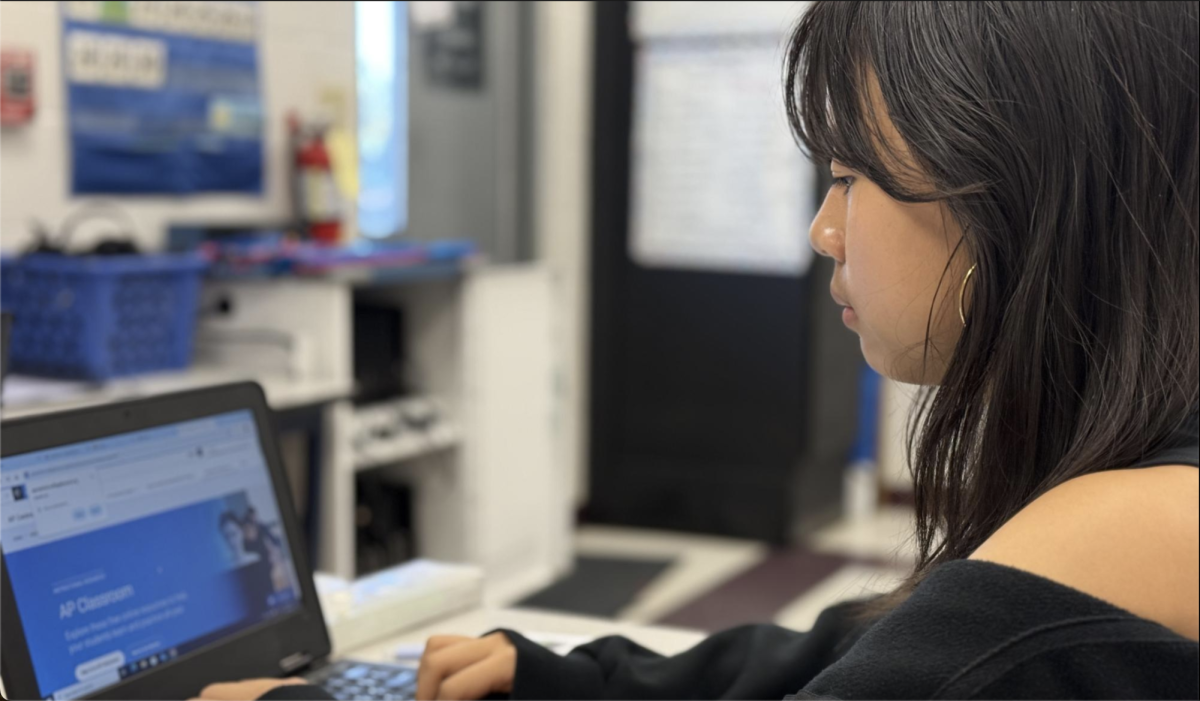Keys clink in the doorway as light enters the classroom. Small paws patter against the tiled floor, and senior Peyton Sheehan glances up to find the source of the sound. A furry guest looks back at her, and she can’t help but smile.
“A dog won’t judge you,” Sheehan said. “People are much more likely to want to go see a dog to relieve their stress at school rather than talking to their parents or a therapist. The dog is an easy access way for students to calm themselves down during finals. It’s right on campus and there’s less stigma around [mental health assistance] there.” Starting this year, the school introduced Tesla, a therapy dog, as a new member of faculty. She comes in regularly on Tuesdays and Fridays to provide students and staff a sense of warmth and comfort. Tesla is handled by Assistant Principal Sarah Perry, the dog’s owner, trainer and therapy “teammate.”
“This past year, when I came to school on non-student days, I started bringing her to work with the staff, and everybody loved her,” Perry said. “I thought, ‘can she come to school every day?’ and I knew I had to get her recertified.”
Originally, Tesla and Perry earned certification in New York, where they used to live. During the pandemic, Perry let the certification expire since Tesla could not go to nursing homes, libraries or schools any longer. Recently, they took the test again in Florida.
“As Tesla grew older, it became obvious how chill she was, so I took her to basic training,” Perry said. “To be a therapy dog, they have to pass all sorts of different tests. They have to be able to interact with a wheelchair and walk by other dogs without a reaction and all sorts of different things to make sure that they’re ready for that kind of work. We passed the test — I say ‘we’ because we’re a team — and she got certified.”
Senior Peyton Sheehan said having a therapy dog at school brightens her day.
“Every time I see her in the hallway, I immediately feel so incredibly happy,” Sheehan said. “I love her so much. She’s so sweet.”
With more than a decade of experience, social worker Lori Stellwag said Tesla is far more than a school mascot.
“I love having a therapy dog,” Stellwag said. “Dogs are very calming. They’re always there for the person who needs them to provide a source of comfort. I always smile when I see a dog, so being able to see a dog [during school hours], especially when you can love on [her], [that interaction] will make anyone’s day better.”
In 2019, the DeSantis administration advocated for mental health lessons in Florida public schools and easy access to the suicide hotline. With these efforts, combined with nationwide growth in mental health awareness, the National Survey on Drug Use and Health reported a 20% decrease in teenage depression and 30% increase in adults attending therapy. Stellwag said she attributes mental health improvements to the expansion of mental health resources available to students.
“We are able to refer our students to mental health agencies and be there for the students whenever they need help throughout the day,” Stellwag said. “I have resources I can give out for anxiety, depression or even time management. It really helps to verbalize what is on your mind to release stress [by talking to a social worker or counselor].” Sheehan said these mental health resources are critical at a rigorous college-preparatory school.
“A lot of my friends and I, even on weekends, are constantly stressed,” Sheehan said. “We constantly feel like we’re forgetting homework or we have a test the next day. Even if there’s not actually any more work, it’s a constant stress on your mind that plagues you even through breaks.”
In order to release this stress during the school day, Stellwag said she recommends taking breaks throughout the day.
“[At] the school I was at previously, we had a therapy dog come in about once a month and the kids just loved it,” Stellwag said. “It was a really successful event every time. Having a therapy dog on campus and having students know that a therapy dog is there and available for them so often is incredible.”
By bringing Tesla to the school campus, Perry said she hopes to reduce the tensions and mental health concerns students often face.
“We’re always looking for ways to support the students, you guys are our number one priority,” Perry said. “When changing means of boosting mental health awareness, we look at all different sets of data, like observational and survey data.”
In the face of a “Mental Health Crisis” where “1 in 6 U.S. youth aged 6-17 experience a mental health disorder each year,” according to the National Alliance of Mental Illness, schools are trying to ensure every student has the help they need.
“I love having a variety of resources to help make sure that everybody can get what they need when they need it,” Perry said. “The more people you have on campus looking for [signs of mental health struggle] and offering those resources, the more likely students will get what they need.”


![Sophomore Isabelle Gaudry walks through the metal detector, monitored by School Resource Officer Valerie Butler, on Aug. 13. “I think [the students have] been adjusting really well," Butler said. "We've had no issues, no snafus. Everything's been running smoothly, and we've been getting kids to class on time.”](https://westshoreroar.com/wp-content/uploads/2025/08/IMG_9979-1200x800.jpg)



















